Congratulations to the poster prize winners at VINSE NanoDay
Each year, Vanderbilt University arrange an annual forum called VINSE NanoDay for members of the VINSE community engaged in nanoscience and nanotechnology research to engage in presentations, posters and discussions. Nanoscale Horizons, Nanoscale and Nanoscale Advances were delighted to sponsor poster prizes at the 2024 edition of VINSE NanoDay. Congratulations to our winners and find out more about some of them below:
Shannon Martello graduated from Johns Hopkins University with a BS and MSE in Chemical and Biomolecular Engineering in 2017 and 2018, respectively. She then joined the lab of Dr. C. Norman Coleman at the National Cancer Institute as a post-baccalaureate Cancer Research Training Award Fellow. Under the direction of Dr. Coleman and Dr. Molykutty Aryankalayil, she studied blood-based miRNA signatures for radiation biodosimetry across different strains of mice and established a human liver-on-a-chip model to aid development of radiation countermeasures and of organ-specific radiation injury biomarkers. Shannon continued in the field of radiation biology at Vanderbilt University, where she is currently a PhD candidate in Chemical and Biomolecular Engineering. Under the direction of Dr. Marjan Rafat, she is studying neutrophilvasculature crosstalk in radiation-damaged mammary adipose tissue, with the goal of using 3D in vitro models to identify targetable interactions that contribute to breast cancer recurrence. Among other recognitions, Shannon received the Vanderbilt Russel G. Hamilton Fellowship and the AIChE Women in Chemical Engineering travel award. She has co-authored eleven peer reviewed publications and is first-author on three publications and four conference presentations and proceedings.
Shannon received an award for her poster entitled ‘Neutrophil-Vasculature Interactions Promote Pre-Recurrent Niche Formation Post-Radiotherapy’ |
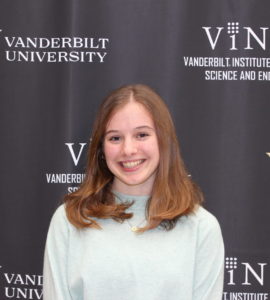
Born in Florida, raised in Nashville, Lillie Cate Allen’s love of science started as an obsession with animals and parents who let her watch unlimited episodes of Wild Kratts on PBS. Homeschooled K-8th grade, it was the ISR program at Hillsboro that helped her handle the culture shock of high school and discover her love of research. She will graduate with honors in May of 2025 and (fingers crossed) begin her undergrad at Vanderbilt that fall, where she’ll pursue her Biomedical Research degree. She is giddy about the years and degrees in her future and can’t wait to see what research opportunities come next.
Lillie Cate was awarded a prize for her poster entitled, ‘Optimizing the Porosity Different PVDF Castings’
|
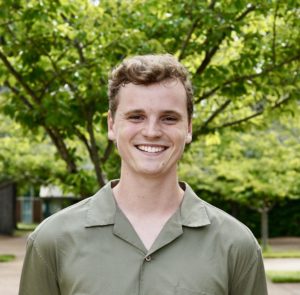
Daniel Woods is a PhD student in the Biomedical Engineering Department at Vanderbilt University, working under Dr. Daniel Gonzales. His research focuses on developing innovative probes for neural recording in nonhuman primates, with a particular interest in integrating optogenetic stimulation during working memory tasks. He holds both a B.S. and M.S. in Biomedical Engineering from the University of Tennessee, Knoxville.
Daniel received an award for his poster entitled ‘Flexible, transparent electrodes for acute recordings in non-human primates’
|
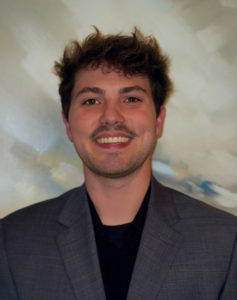 Harrison Walker is a computational materials scientist and electron microscopist who combines machine learning with density functional theory to study atomic vibrations in complex materials. After graduating from Auburn University in 2022, where he researched superconducting electronics, he joined Vanderbilt University’s graduate program in Interdisciplinary Materials Science. Now an NSF Graduate Research Fellow interning at Oak Ridge National Laboratory, Walker uses state-of-the-art electron energy loss spectroscopy to probe vibrational phenomena at the atomic scale while developing machine learning models that bridge the gap between accuracy and computational efficiency of quantum mechanical calculations. By merging machine learning with atomic-scale measurements, his work opens new frontiers in understanding and engineering materials at their most fundamental level, with implications for developing technologies that could address global challenges in energy and computing. Harrison Walker is a computational materials scientist and electron microscopist who combines machine learning with density functional theory to study atomic vibrations in complex materials. After graduating from Auburn University in 2022, where he researched superconducting electronics, he joined Vanderbilt University’s graduate program in Interdisciplinary Materials Science. Now an NSF Graduate Research Fellow interning at Oak Ridge National Laboratory, Walker uses state-of-the-art electron energy loss spectroscopy to probe vibrational phenomena at the atomic scale while developing machine learning models that bridge the gap between accuracy and computational efficiency of quantum mechanical calculations. By merging machine learning with atomic-scale measurements, his work opens new frontiers in understanding and engineering materials at their most fundamental level, with implications for developing technologies that could address global challenges in energy and computing.
Harrison was awarded a prize for his poster entitled, ‘Polar-Topology-Mediated Phonons in Ferroelectric Superlattices’
|
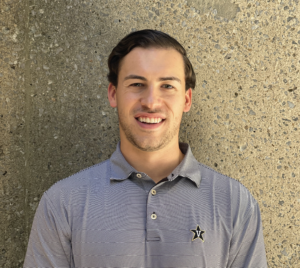
Hayden Pagendarm is a 5th year graduate student in Dr. John Wilson’s laboratory at Vanderbilt University. His research goals include designing novel vaccine platforms for both cancer and immune tolerance applications using approaches including both protein and extracellular vesicle engineering in combination with synthetic chemistries.
Hayden was awarded a prize for his poster entitled, ‘Albumin-binding nanobody-antigen fusions enhance antigen presentation and improve vaccine responses through pharmacokinetic modulation.’
|
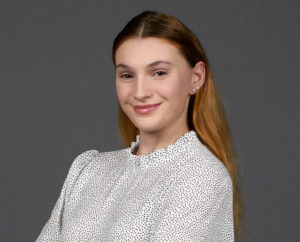
Emanuela Riglioni is a first-year graduate student in the Interdisciplinary Materials Science PhD program at Vanderbilt University. Originally from Italy, she graduated summa cum laude from Xavier University of Louisiana with a bachelor’s degree in chemistry. During her undergraduate studies, Emanuela worked on developing polymers for Li-ion batteries and performed computational analyses of 2D MXenes for catalytic applications. Currently, her research focuses on exploring the intersection of semiconductors, photonics, and 2D materials. Emanuela’s interdisciplinary approach aims to drive innovations in materials science and contribute to addressing global challenges through cutting-edge technology.
Emanuela was awarded a prize for her poster entitled, ‘Optimization of Etch, Release, and Transfer of GaN HEMTs Devices’
|
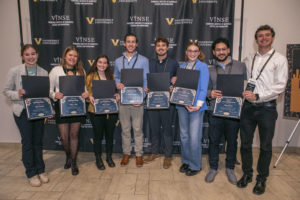
NanoDay 2024 VINSE Vanderbilt University
Photo: Anne Rayner
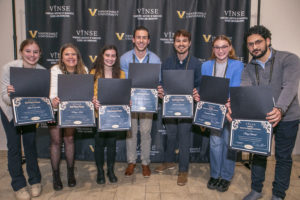
NanoDay 2024 VINSE Vanderbilt University
Photo: Anne Rayner


















